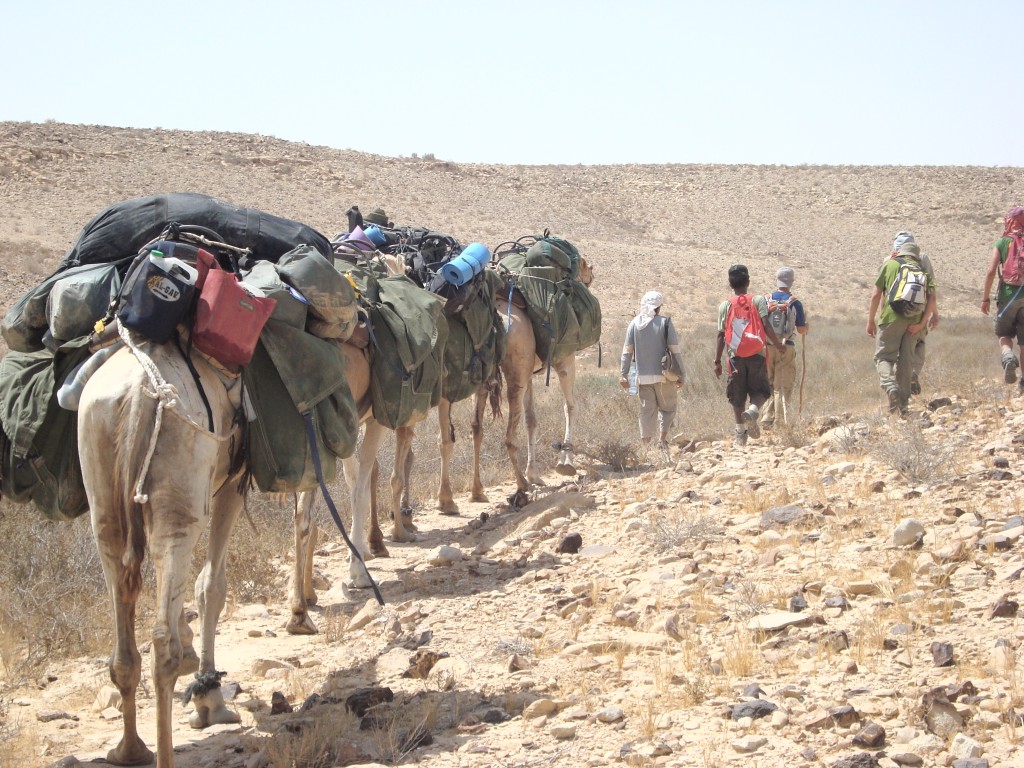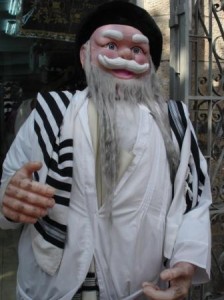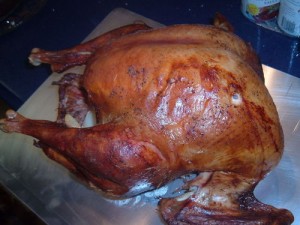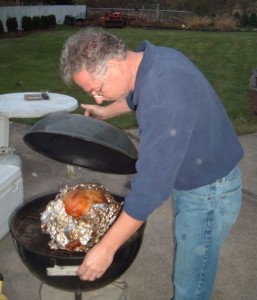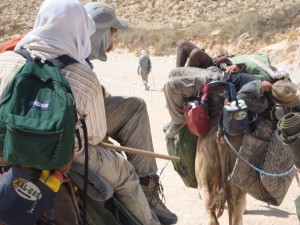
Riding on Camels through the desert in Israel..or perhaps sleeping on camels in the desert in Israel
It is very common for us to set out on a road trip and after driving for a bit, someone will recite Tefilat Haderech (the traveler’s prayer) and everyone else will respond ‘amen.’
When Rachel and I did a week-long camel riding trip in the desert in Rajasthan, we left the city on camel back and I guess that at some point the same thing would happen as if we were in a car; we would say Tefilat Haderech – only this time while on the back of a camel. I had the same situation when going for a four-day camel trek in Israel, though with the group I was part of, we mostly walked and did not ride the camels.
So can one say Tefilat Haderech while riding on a camel… or what about a horse or any other animal for that matter?
This is obviously an issue because people were traveling on animals before cars. According to halacha/Jewish law one should stop their animal if possible. This would apply to stopping a car as well. Stopping a ship or a plane may not be possible.
Some other issue to take into acount is that one should not say a bracha if there is an unpleasant smell. The question would be: if there is a bad smell coming from the camel (a combination of camel breath, camel farts, and wet camel hair generally constitutes a very bad smell!) one should probably get off the camel and walk a few feet away.
Read More

